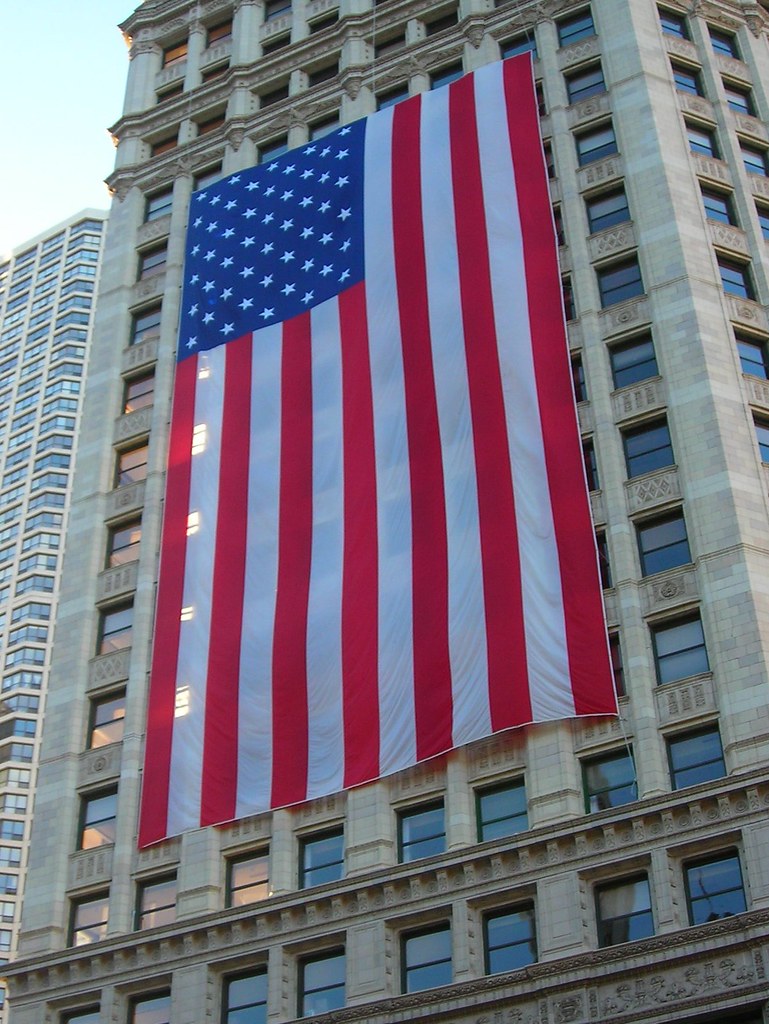The Unstoppable Force of American Innovation

Picture this: In 2024 so far, an average 430,000 new-business applications per month are being filed in the United States, which represents a 50% increase over 2019 – that’s more than half a million people each month deciding to chase their dreams. The American startup scene isn’t just busy, it’s absolutely exploding. Entrepreneurs filed 450,000 likely employer applications in the fourth quarter of 2023, a 37 percent increase over the fourth quarter of 2019. The number of startups—businesses under 1 year old—surged in 2022 and 2023, surpassing pre-Great Recession levels for the first time. What’s driving this? It’s the uniquely American belief that any crazy idea can become the next big thing. The United States has long been recognized as a global leader in entrepreneurship, innovation, and business creation. With its diverse population, strong economy, and a culture that encourages risk-taking and innovation, the US has fostered a thriving entrepreneurial ecosystem that continues to attract entrepreneurs from around the world. When failure is seen as a learning experience rather than a final verdict, people dare to dream bigger.
The Work Culture That Never Sleeps

Americans have a relationship with work that’s both fascinating and exhausting. A dynamic blend of innovation, collaboration, and individual accountability shapes the work culture in the USA. The free enterprise system encourages creativity, where employees are driven to excel and contribute new ideas. American workplaces value teamwork and personal responsibility, promoting a balance where individuals take ownership of their tasks while working towards collective goals. It’s not just about clocking in and out – it’s about making a mark. In the USA, professionals often form a strong connection with their work, with pride and dedication being central to their daily contributions. This isn’t necessarily healthy, but it’s distinctly American. While other cultures might prioritize work-life balance, Americans often wear their busy schedules like badges of honor.
The Melting Pot That Actually Melts

Every country claims to be diverse, but America takes it to another level. America is known as a “melting pot”, featuring ethnic, racial and cultural diversity. This characteristic, shaped by a long history of immigration, impacts cuisine, language, music, and more. Diversity is celebrated annually during events like the World Cultural Festival. Walk through any American city and you’ll find Korean barbecue next to Mexican tacos next to Ethiopian injera. America’s foundations were initially Western-based, and primarily English-influenced, but also with prominent French, German, Greek, Irish, Italian, Scottish, Welsh, Jewish, Polish, Scandinavian, and Spanish regional influences. However, non-Western influences, including African and Indigenous cultures, and more recently, Asian cultures, have firmly established themselves in the fabric of American culture as well. It’s messy, it’s complicated, but it creates something entirely new.
The Entertainment Empire That Rules the World

Hollywood isn’t just an industry – it’s a cultural weapon of mass influence. Indeed, the commercial weight and cultural impact of Hollywood films is now felt in virtually every corner of the world. Rental fees generated by exports of film and tape amounted to $8.85 billion in 2000 as compared to $1.68 billion in 1986 – an increase of 426%. Think about it: kids in remote villages know who Spider-Man is before they know their own country’s folk heroes. Hollywood influences global culture through American films and entertainment, shaping trends, perceptions, and narratives that resonate internationally. Hollywood also disseminates more subtle aspects of American culture such as its humor or social customs thereby fostering familiarity and affinity among global viewers towards America. This isn’t just entertainment – it’s cultural colonization through CGI and catchy soundtracks. American entertainment however is exported more than any other country’s, and has created an influential cultural bubble around the world through media. American entertainment contains all the best elements of a selling product: enticing, unpredictable, and satisfying.
The Sports Obsession That Transcends Games

Sports in America aren’t just games – they’re religious experiences, economic powerhouses, and social unifiers all rolled into one. The overall economics of the sports industry is expected to continue to be strong in 2024. However, the commercial model, which has been undergoing significant shifts in recent years, will likely continue to transform across both traditional and emerging revenue streams. Friday night football games shut down entire towns, March Madness turns office workers into basketball analysts, and the Super Bowl becomes a national holiday. We’ve also seen sports fans themselves having a notable influence on how sports are consumed and monetized—and how sports are woven into the broader media and entertainment ecosystem. Over the past few years, individual athletes have had unique impacts on the sports landscape—with many reaching “influencer” status, speaking openly about social issues, and changing the way fans can connect directly with their favorite sports stars. What other culture turns college athletes into millionaires and makes professional sports draft picks front-page news?
The Individualism That Defines Everything

Americans have taken individualism and turned it into an art form. Politically, the country takes its values from the American Revolution and American Enlightenment, with an emphasis on liberty, individualism, and limited government, as well as the Bill of Rights and Reconstruction Amendments. While other cultures might ask “What’s best for the group?”, Americans instinctively ask “What’s best for me?” This isn’t necessarily selfish – it’s a fundamental belief that individual success leads to collective prosperity. One of the most defining characteristics of American culture is its emphasis on individualism. In many other countries, especially in collectivist societies like Japan or China, the needs and desires of the group are often prioritized over those of the individual. This shows up everywhere: from the American dream of self-made success to the expectation that you’ll create your own path rather than follow tradition.
The Consumer Culture That Conquered the World

Americans didn’t just invent modern consumer culture – they perfected it and exported it globally. Another striking difference between American culture and others is its deeply ingrained capitalist mindset. The U.S. is known as a consumer-driven society, where material success is often equated with personal fulfillment. This can be seen in the way Americans prioritize economic growth, innovation, and the accumulation of wealth. Black Friday isn’t just a shopping day – it’s a cultural phenomenon that other countries have started copying. Black Friday, a uniquely American shopping phenomenon, epitomizes the country’s love of bargains and deals. While consumerism exists in many parts of the world, the level of enthusiasm and the commercial nature of American culture are particularly notable. Americans have made shopping into entertainment, turned brands into identities, and created a culture where “retail therapy” is a legitimate concept.
The Freedom of Speech That Shocks the World

Americans take free speech to levels that make other democracies uncomfortable. Under the First Amendment, the United States has the strongest protections of free speech of any country. American popular opinion is also the most supportive of free expression and the right to use the Internet. Where other countries might ban hate speech or require government licenses for media, America lets almost everything fly. This creates a chaotic, sometimes ugly, but undeniably vibrant marketplace of ideas. You can burn the flag, mock the president, and start a podcast about conspiracy theories – all legally protected activities. The United States originated stand-up comedy and modern improvisational theatre, which involves taking suggestions from the audience. This freedom extends to creativity, allowing American entertainment to push boundaries that would be censored elsewhere.
The Time Obsession That Drives Everything

Americans treat time like a finite resource that must be maximized at all costs. Time is another cultural aspect where the U.S. differs significantly from other countries. Americans tend to live fast-paced lives, where every minute counts. Efficiency and productivity are highly valued, whether in the workplace or personal life. While other cultures might say “we’ll get there when we get there,” Americans schedule their lives down to the minute. This contrasts with cultures in many European countries or Latin America, where there’s often a more relaxed attitude toward time. In the U.S., people are accustomed to tight schedules and quick turnarounds. Drive-through everything, 24/7 services, and the concept of “time is money” all stem from this uniquely American relationship with time.
The Educational Hustle That Never Ends

American education isn’t just about learning – it’s about competing, networking, and building your personal brand. The answer is yes and no: You don’t have to go to school for it, but doing so can help accelerate your growth and provide you with the fundamentals for entrepreneurial success. Not all elements of entrepreneurship can be found in a book, of course, which is why the best colleges and universities have robust programs that support students’ startups and help build the kind of networks that last a lifetime. American universities function like small cities, complete with their own sports empires, research facilities, and social hierarchies. UW-Madison is consistently ranked among the top 10 institutions in NSF (National Science Foundation) research expenditures and is highly ranked for academics across a wide range of programs. This diversity and strong academic reputation attracts a student population from across the world that is eager to learn, connect, and change the world. Evidence of the successful outcomes that derive from this campus culture of leadership, entrepreneurship, and innovation includes the UW being one of the top 20 institutions for graduates who become Fortune 500 CEOs, launch venture-backed startups, and volunteer for the Peace Corp. The American approach to education emphasizes not just academic achievement but also personal development and networking.
The Digital Transformation That Changed Everything

Americans have embraced technology in ways that reshape daily life constantly. 38% of consumers utilized AI-powered shopping assistants in 2024, streamlining their purchasing decisions. 47% of global shoppers experienced AI-powered recommendations that improved their satisfaction. While other countries debate the ethics of AI, Americans are already using it to buy groceries and find entertainment. 73% of consumers favored investing in experiences rather than material possessions. Global social commerce sales are projected to surpass $1.2 trillion by 2025. This isn’t just adoption – it’s integration. Americans have woven technology so deeply into their culture that the lines between digital and physical life have completely blurred.
The Economic Powerhouse That Sets Global Standards

America’s economic dominance isn’t just about numbers – it’s about setting the rules for how the world does business. The US boasts the world’s largest economy, with a Gross Domestic Product (GDP) of over $25.5 trillion USD in 2022. This economic strength provides a solid foundation for entrepreneurs to build and scale their businesses. When America sneezes, the world catches a cold – that’s not just a saying, it’s economic reality. From 2021 through 2022, arts and cultural exports continued to increase; the trade surplus rose from $15.5 billion to $21.0 billion. Top arts export commodities included creative advertising, information services such as audio/visual production for TV and movies, and arts-related software publishing. American economic culture has created models that other countries either copy or rebel against, but they can’t ignore.
The Generational Shift That’s Redefining Success

Young Americans are flipping traditional success metrics on their head. This year’s GEM report, which polled more than 2,000 U.S. adults in the summer of 2022, shows young entrepreneurs drove the surge. Adults aged 18-34 reported nearly twice the rate of entrepreneurial activity compared to those in the 35-64 age group. They’re not just waiting for permission to start companies – they’re creating their own rules. About 40% of traditionally employed Americans are considering becoming an entrepreneur, saying it’s “somewhat likely” they’ll work for themselves within the next two years. People under 35 and the highly educated are even more likely to consider entrepreneurship, at a rate of 50%. This generation is redefining what American success looks like, prioritizing purpose over paychecks and flexibility over traditional career ladders.
The American cultural experience is like a 24/7 reality show where everyone’s simultaneously the star, the audience, and the critic. It’s exhausting, exhilarating, and impossible to ignore. Whether you love it or hate it, American culture has this uncanny ability to make itself relevant to your life, no matter where you are in the world. What would you have guessed was the most surprising thing about how deep American influence really goes?





